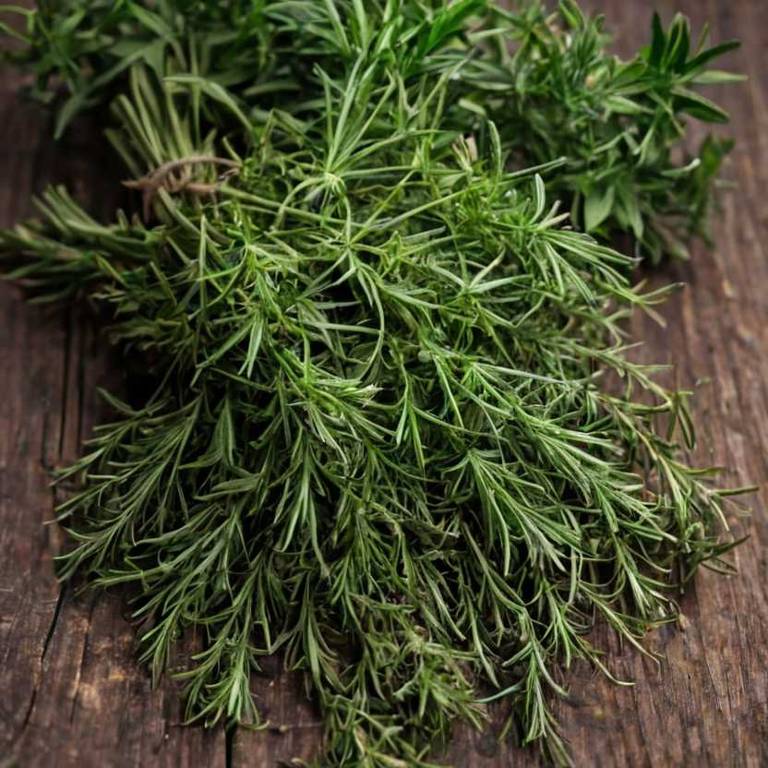10 Best Pinus Sylvestris Preparations

The best medicinal preparations of Pinus sylvestris are teas, decoctions, tinctures, essential oils, and mucillages, each offering unique therapeutic benefits.
Teas made from the needles or cones are commonly used to support respiratory health and reduce inflammation.
Decoctions, which involve boiling the bark or needles, are valued for their ability to extract more potent compounds.
Tinctures provide a concentrated form of the herb's active ingredients for targeted use.
Essential oils derived from the needles are often used in aromatherapy to promote relaxation and alleviate stress.
Mucillages, found in the resin, are used for their soothing and protective properties in topical applications.
Below there's a list of the 10 best herbal preparations of pinus sylvestris for medicinal purposes.
1. Teas
Pinus sylvestris teas is commonly used to support respiratory health, alleviate digestive issues, and promote relaxation.
This herbal preparation is often employed to treat ailments such as coughs, bronchitis, indigestion, and stress-related conditions. The most common medicinal uses include easing symptoms of respiratory infections, improving digestion, and reducing anxiety. The bioactive constituents responsible for these effects include terpenes, flavonoids, and phenolic compounds, which possess anti-inflammatory, antimicrobial, and antioxidant properties.
These compounds work synergistically to enhance the therapeutic benefits of the tea.

2. Decoctions
Pinus sylvestris decoctions is commonly used to treat respiratory and digestive ailments, as well as for its calming and anti-inflammatory effects.
These decoctions are often employed in the management of conditions such as bronchitis, asthma, and indigestion. They are also used to alleviate symptoms of anxiety and insomnia due to their mild sedative properties. The bioactive constituents responsible for these effects include terpenoids, flavonoids, and phenolic compounds, which exhibit antioxidant, anti-inflammatory, and bronchodilatory activities.
Additionally, the presence of essential oils contributes to its antimicrobial and expectorant properties.

3. Tinctures
Pinus sylvestris tinctures is commonly used to treat respiratory conditions, digestive issues, and skin disorders.
These preparations are often employed for alleviating symptoms of coughs, bronchitis, and asthma due to their expectorant and anti-inflammatory properties. They are also used to aid digestion and relieve gastrointestinal discomfort. The bioactive constituents responsible for these effects include terpenes, flavonoids, and phenolic compounds, which exhibit antioxidant, antimicrobial, and anti-inflammatory activities.
Additionally, the essential oils in the tinctures contribute to their soothing and therapeutic effects on the respiratory and digestive systems.

5. Mucillages
Pinus sylvestris mucillages is commonly used to treat respiratory and digestive ailments due to its soothing and protective properties.
It is often employed in the management of coughs, bronchitis, and gastrointestinal discomfort such as indigestion and inflammation. The mucillages form a thick, gel-like substance that coats and protects mucous membranes. The bioactive constituents include polysaccharides, tannins, and flavonoids, which contribute to its anti-inflammatory, antioxidant, and demulcent effects.
These properties make it valuable in traditional medicine for supporting overall mucosal health.

6. Oils
Pinus sylvestris oils is commonly used to treat respiratory and skin conditions due to its antimicrobial, anti-inflammatory, and expectorant properties.
These oils are often applied in aromatherapy to alleviate symptoms of colds, coughs, and bronchitis, while topical applications can help with eczema, psoriasis, and fungal infections. The most common medicinal uses include easing respiratory congestion, reducing inflammation, and promoting skin healing. The bioactive constituents responsible for these effects include monoterpenes such as alpha-pinene, beta-pinene, and camphor, as well as sesquiterpenes like alpha-phellandrene and beta-selinene.
These compounds exhibit antimicrobial, antioxidant, and anti-inflammatory activities, contributing to the therapeutic benefits of the oil.

7. Creams
Pinus sylvestris creams is commonly used to treat skin conditions such as eczema, psoriasis, and minor wounds due to their anti-inflammatory and antimicrobial properties.
These creams are often applied topically to reduce redness, itching, and irritation associated with these ailments. The most common medicinal uses include soothing inflammatory skin disorders and promoting wound healing. The bioactive constituents responsible for these effects include terpenes, flavonoids, and essential oils, which have antioxidant, anti-inflammatory, and antimicrobial activities.
These compounds work synergistically to provide the therapeutic benefits of the herbal preparation.

8. Syrups
Pinus sylvestris syrups is commonly used to treat respiratory tract infections, coughs, and bronchitis due to its expectorant and anti-inflammatory properties.
The syrup is also used to alleviate symptoms of asthma and to support the immune system during colds and flu. Common ailments treated with this herbal preparation include persistent coughs, sore throats, and inflammatory conditions of the airways. The bioactive constituents responsible for its medicinal effects include terpenes, flavonoids, and phenolic compounds, which exhibit antimicrobial, antioxidant, and bronchodilator activities.
These components work together to soothe the respiratory system and enhance the body's natural defenses.

9. Capsules
Pinus sylvestris capsules is commonly used to support respiratory health, alleviate symptoms of colds and coughs, and promote digestion.
These capsules are often employed to treat ailments such as bronchitis, asthma, and gastrointestinal discomfort. The bioactive constituents responsible for these effects include terpenes, flavonoids, and essential oils, which possess anti-inflammatory, antimicrobial, and expectorant properties. Additionally, the presence of phenolic compounds contributes to its antioxidant and immune-boosting capabilities.
This herbal preparation is valued for its natural ability to support overall wellness and ease common ailments.

10. Lozenges
Pinus sylvestris lozenges is commonly used to relieve symptoms of respiratory tract infections, sore throat, and cough.
These lozenges are often employed to treat conditions such as bronchitis, laryngitis, and common cold due to their soothing and antimicrobial properties. The bioactive constituents responsible for these effects include terpenoids, flavonoids, and phenolic compounds, which exhibit anti-inflammatory, antioxidant, and antimicrobial activities. Additionally, the essential oils present in the lozenges contribute to their expectorant and decongestant properties.
Overall, Pinus sylvestris lozenges are valued for their ability to support respiratory health and alleviate discomfort associated with various throat and lung conditions.
